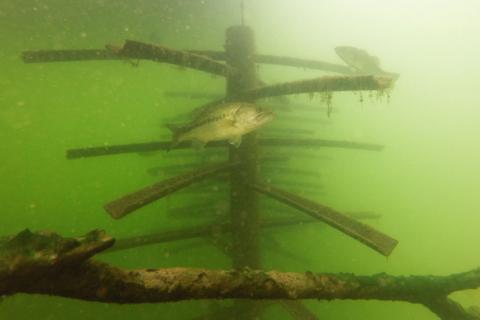Ronnie “Cuz” Strickland | Originally published in GameKeepers: Farming for Wildlife Magazine. To subscribe, click here.
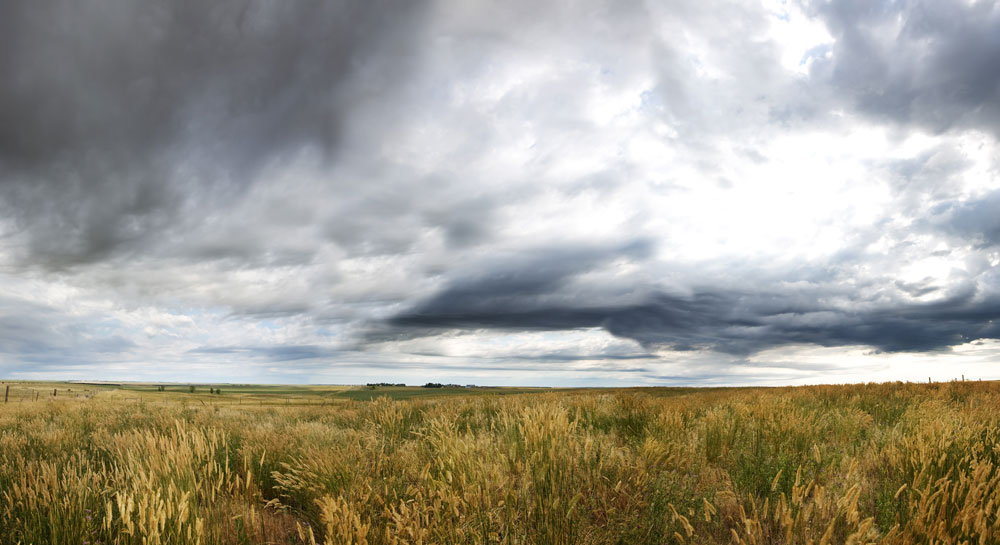
Only hours after Hurricane Katrina blasted the gulf coast, myself and Greg Briggs, also an employee of Mossy Oak, were headed south from West Point, Mississippi. Our mission was to deliver mosquito netting, sunscreen and insect repellent, donated by Mossy Oak, to some of the Mississippi Game Wardens that were already camped on the gulf coast helping with search and rescue and security. It was an eye-opening experience in more ways than one. The devastation was unbelievable, as were the quick actions from concerned first responders. Those first responders were trained and prepared, and other than being light on mosquito repellent they were well supplied. Most of the residents, however, were not.

self-sufficient by nature and tend to fair better
when natural disasters hit. Growing your own
food is important. Besides the obvious
sustenance for your family, it gives you produce
to barter with.
When you know that severe weather like a hurricane is approaching, simply running to the grocery store for milk and bread to prepare “just doesn’t cut it.” One could get ready for weeks for a devastating deluge like Katrina and still be ill-prepared. When hours of no electricity, no water, and little food turn into days and weeks, things get serious. People have gotten used to stopping at the store every other day or so and keeping enough food in the refrigerator for just a few days. We all concentrate on making money more than making preparations. What I learned during that time was you could have all the money in the world and it was basically useless. What people became desperate for (really fast) was water, fuel, food, shelter, diapers, toilet paper, insect repellent, tarps, rope, and the list goes on. When there are no supplies left at Lowe’s or Walmart or you simply can’t get to the store, well like I said, money really doesn’t matter. The “I should have” part of your brain starts sending you messages, but at that point, it’s too late.
Thank God we live in the good ole USA and we have the greatest people in the world to react to disasters. Firemen, law enforcement officers, and great medical care—we have it all, but what if the emergency was so big it stretched the people and supplies too thin? What if you had to tough it out for a couple of weeks rather than a couple of hours, would you be ready? One group of people that faired far better during Katrina were “country folks.” Granted many of them were a little further inland but for whatever reason, they were overall far better prepared than the urban dwellers. People who are “close to the land” seemed to be self-sufficient by nature (imagine that).
The term “Prepper” is all of a sudden very popular. I assume because of the “Doomsday Preppers” TV show that spotlights different people from all corners of the nation who are preparing for a scenario of one type or another. Some of the “preppers” highlighted on the very popular show are a little “over the top” in my opinion, mostly for their reason for preparing. From an EMP (electronic magnetic pulse) to asteroids, volcanoes, terrorist or financial collapse, there are millions of people that spend hundreds of hours and thousands of dollars on prep.
Before you laugh and shake your head you need to realize that in reality most of us are “preppers” if you think about it. If you have a spare tire with your vehicle, you’re a prepper. If you keep extra batteries for your flashlight-you’re a prepper, if you buy the big bag of toilet tissue at Sam’s Club, if you grow tomatoes or check the air in your tires, you’re a prepper. Sure there are degrees of prepping—there is a difference between building a raised bed garden and constructing an underground bunker, but anyone who believes in being prepared and self-reliant is a prepper to some degree.
Back to the country folks—farmers, ranchers, landowners, hunters, fishermen, gamekeepers—what do they have in common? Most of them are by nature, hardworking, “self-reliant” people who have needed in life to constantly prepare for the unexpected. They have a plan A, plan B and plan C. They put back, put up, put together and put in place different things and plans year-round to make sure their land, their hunt, their cattle or crops have the best chance for success. Sounds like “Prepping” to me.
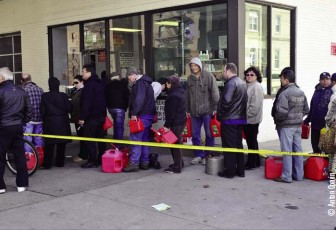
they do make small arrangements for a
“rainy day,” they don’t consider themselves
“preppers.” When disasters occur, water, food,
shelter, diapers, toilet paper and fuel become
some of the most important commodities.
“Prepping” as popular as it is becoming today is not a new concept. The “Y2K” scare started the modern era of preppers, but being self-reliant and prepared has been around as long as humans. I assume that generations past did not consider it “prepping,” but more “surviving.” Past generations were certainly more prepared for life “off the grid” than we are—a castle storing supplies in preparation for a long siege, learning to store food in caves, cold streams or later in cellars, or the recently uncovered cache of stone tools found in Colorado from the Clovis culture are all examples of people trying to prepare.
When there is no electrical grid to power refrigerators, freezers, generators, lights, water and sewage treatment it doesn’t take long for people to get testy. Sadly many of the survival skills and crafts our grandparents and great grandparents possessed—like starting a fire and building shelter using nothing but what nature provides—are all but gone in today’s society.
Smoking and curing meat, grinding seed for flour and cornmeal, growing crops, raising chickens and other livestock are things we may all be familiar with but in reality, know little about. Many of today’s avid outdoorsmen think they could sustain themselves and their families by hunting and fishing and just living off the land. That’s a noble thought, but when you do the math, it won’t add up. Sure you may know how to hunt, field dress and butcher a deer but would you know how to store it if there were no freezer? You can grow a great food plot then surely you can grow your own wheat, but could you turn that wheat into flour? Could you and your family make it for a few weeks on just deer meat? How much food do you actually consume every day?
The US Department of Agriculture estimates that the average person in the United States eats .5 lbs of meat, 1.6lbs of dairy products, .2 lbs of fats and oils, .8 lbs of fruits, .7 lbs. of vegetables, .5 lbs of grains, and .4 lbs of sugars per day for a total of 4.7 lbs. of food per day. Protein (Venison) is important but should not be relied on solely for an emergency food supply.
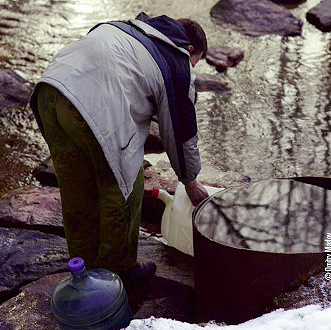
important needs for survival. A clean water
source or a way to disinfect water from a lake,
pond, river or stream is a must.
What about water? You probably know a spot where fresh water is abundant, right? Lakes, streams or nearby ponds would be a good guess. All you need is a bucket. Actually, untreated surface water in rivers, streams, lakes, and ponds is not safe to drink unless it is treated to remove bacteria, viruses, and parasites. How much water do you need per day? Let’s leave out (for now) hygiene and go with just survival. The Institute of Medicine says adult men actually need about 13 cups (three liters) per day of fluid; adult women need about nine cups (2.2 liters) of fluid. That’s a lot of trips with a bucket back and forth from the pond. Then you have to treat it. Several ways to do that, boiling, iodine, charcoal filters, it’s no big deal but if you had to do it tomorrow could you? Now that your head is spinning with prepper thoughts here’s a sort of universal “top 10 list” of things you would need to be prepared for at least a short term emergency.
1. Water
Many people make the mistake of underestimating how much water they need. The average American utilizes almost 70 gallons of water per day. FEMA recommends at least one gallon per person per day for hydration, (don’t forget your pets).
2. Medication
In an emergency, you should have a month’s supply of medications for serious health conditions.
3. Food
Be sure to have at least a two-week supply of nonperishable food. Store your food in a safe and convenient place so that it is easily accessible. If you purchase dehydrated food it’s a good idea to order a variety of samples to see what you and your family like best.
4. Heat Source
Having a portable heat supply is important. Don’t assume that your fireplace will suffice or that your firewood will remain dry—have a backup.

a way to charge batteries will mean you may still
be able to use some of the technology we have
become accustomed to. A solar charger can
easily charge small batteries.
5. Personal Hygiene Items
Toilet tissue, sanitized wipes, soap, alcohol, disinfectant, and bleach are just some of the personal hygiene items you should have on-hand.
6. Portable Grill
Propane grills and camping stoves work great for cooking and boiling water. Extra propane bottles are a must.
7. First Aid Kit
The bigger the better. Purchase a large tackle box and fill it with items from a list you prepare yourself.
8. Radios
Hand-cranked radios are easy to find and priceless in an emergency. Also, two-way (walkie–talkie) type radios are useful.
9. Power
A solar charger for cell phones (if the towers still work), a generator with extra fuel, flashlights and extra batteries, candles. What will your devices run on when there is no electricity?
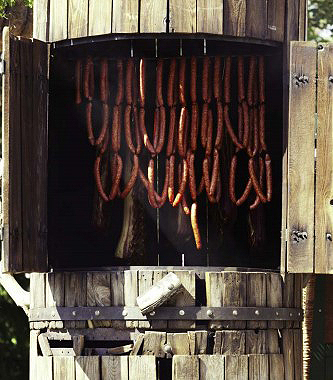
your prepper food plan. Knowledge of how to
make a simple smoker can come in handy too.
10. Well-Stocked Tool Shed.
You can’t have enough tools, especially chainsaws. Make sure to have plenty of fuel for your saws. The chances are none of us will ever have to grind wheat, smoke and cure meat or boil pond water; this is just a reality check of sorts to test how self-reliant you really are. Self-reliance isn’t just about being a “prepper.” For many people, it’s a way of life now. It’s about better living and better health from growing and processing more of your own food. It’s about more time with family while raising a garden and being outside. But most of all, it’s about “peace of mind.” Knowing that to some degree you are prepared for whatever comes your way. It could be a few hours with no power; or at worst a few days. It’s oftentimes difficult to comprehend being off the grid and on your own for an extended period of time, most believe, “surely that can’t happen in the USA.”
Just ask some of the people in New Jersey who went weeks with no power, no water, and very little help after hurricane Sandy. In today’s economy, it’s only a matter of time until government agencies are so underfunded and understaffed that help may not be on the way as it once was. The people that overcome adversity fastest are the ones that are all about taking responsibility, a virtue that gamekeepers are all very aware of. Being responsible for the land and the critters is second nature for most of us, but even gamekeepers may find themselves a little unprepared at times.
Prepping seems to be an addiction and people who do it don’t necessarily want you to know about it. Perhaps the stereotypical vision of a “reclusive hoarder,” that’s a bit radical in their beliefs, keeps most preppers from “going public.” I can promise you the ones I have encountered are among the smartest people I have ever met. That actually scares me a little. Like with any group, there is sure to be the misguided bad apple that gets all the attention, but from what I have seen this fast-growing, self-reliance “prepper movement” is about just that.















